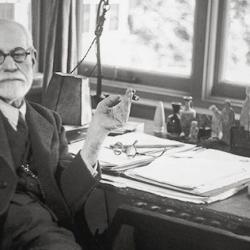In the course of reviewing Philippe Desan’s Montaigne: A Life, Jane Kramer speculates on the fraught question of Montaigne’s influence on Shakespeare. Such influence is historically plausible: “Although Florio’s 1603 effort was the first English rendering of Montaigne’s essays to appear in book form, they had certainly been circulating in manuscript before that.” And Kramer “finds it impossible to imagine that Shakespeare had not absorbed Montaigne fully, and decisively, right around 1600.”
Comparisons are always controvertible, but Kramer gives some pretty convincing examples.
As everyone knows, Hamlet says, “What a piece of work is a man! how noble in reason! how infinite in faculty! in form and moving how express and admirable! in action how like an Angel! in apprehension how like a god! the beauty of the world! the paragon of animals! And yet, to me, what is this quintessence of dust? man delights not me; no, nor woman neither, though by your smiling you seem to say so.”
Kramer notes that “the balancing of opposites, the rhythm of assertion and counter-assertion, the sudden questioning turns, all of it seems irresistibly like Florio’s Montaigne, notably in the springy, self-surprised beat: ‘How often do we pester our spirits with anger or sadness by such shadows and entangle ourselves into fantastical passions which alter both our mind and body? What astonished, flearing, and confused mumps and mows doth this dotage stir up in our visages! What skippings and agitations of members and voice!’”
She thinks that Jaques in As You Like It is even more the “Montaignean man,” who reflects the influence of Montaigne’s essay “On Cruelty”: “Montaigne’s point is that when it comes to cruelty we should subordinate all other ‘reasoning’—stoic, of degree and dependency—to the essential fact of the stag’s suffering. We can reason our way past another creature’s pain, but, as we do so, such ‘reason’ becomes the indicted evil. Jaques feels the same way. ‘We are mere usurpers, tyrants, and what’s worse / To fright the animals and kill them up,’ he says, while ‘weeping and commenting upon the sobbing deer.’ We are meant to find Jaques’s double occupation of weeping and commenting, feeling and keeping track of his feelings, mildly comic—Shakespeare being always convinced, in his English way, that the French are hypersensitive and over-intellectual. But Jaques is not a ridiculous figure. He is conscience speaking through contradiction.”
Both writers are poets of human contradiction. Montaigne’s “On the Inconstancy of Our Actions” catalogs the contraries within the writer:
Shame-faced, bashful, insolent, chaste, luxurious, peevish, prattling, silent, fond, doting, laborious, nice, delicate, ingenious, slow, dull, forward, humorous, debonair, wise, ignorant, false in words, true speaking, both liberal, covetous, and prodigal. All these I perceive in some measure or other to be in mine, according as I stir or turn myself. . . . We are all framed of flaps and patches, and of so shapeless and diverse a contexture, that every piece and every moment playeth his part.
There are no verbal parallels to this in Shakespeare, but his every play presents characters of similar complexity.











